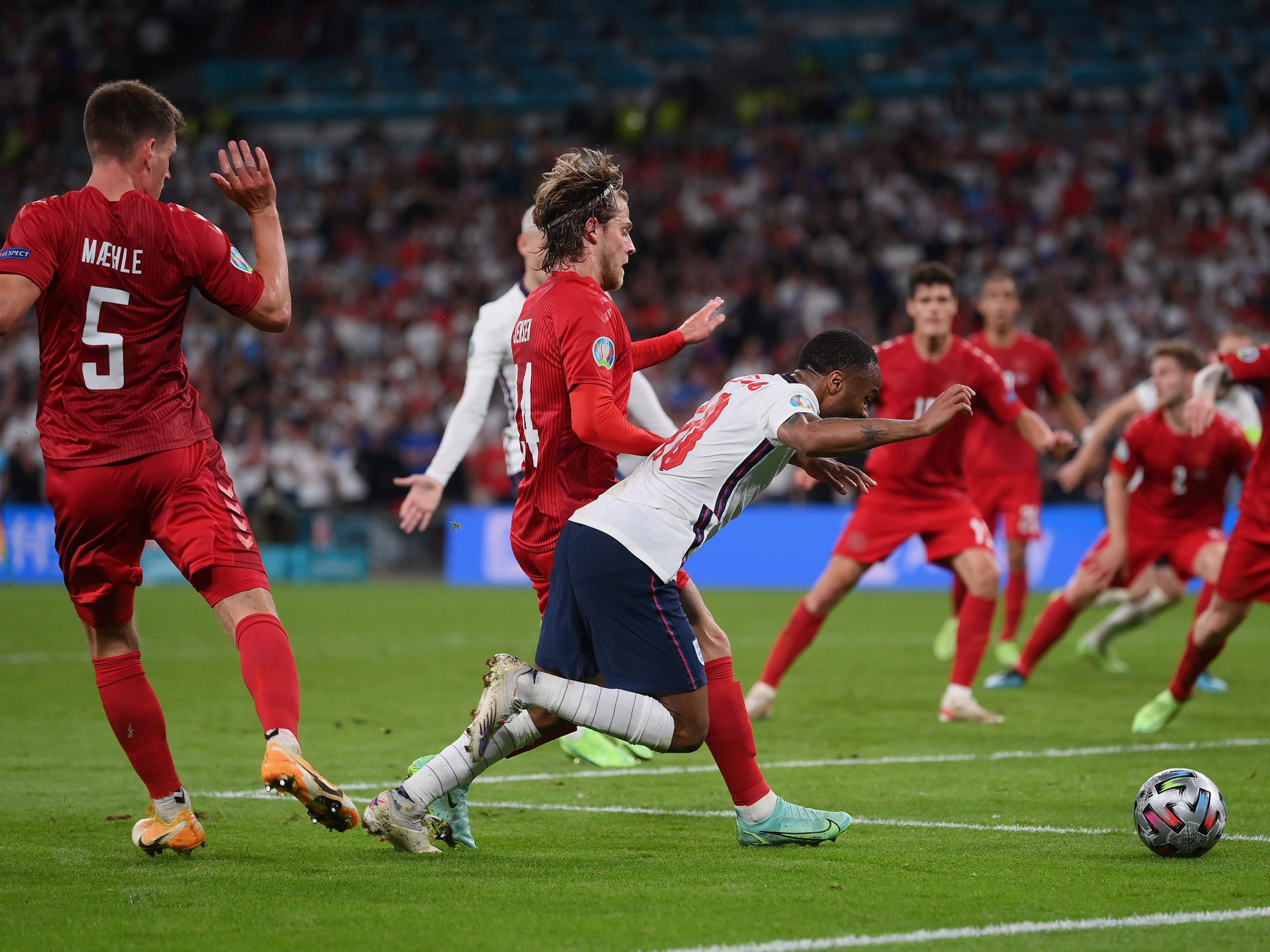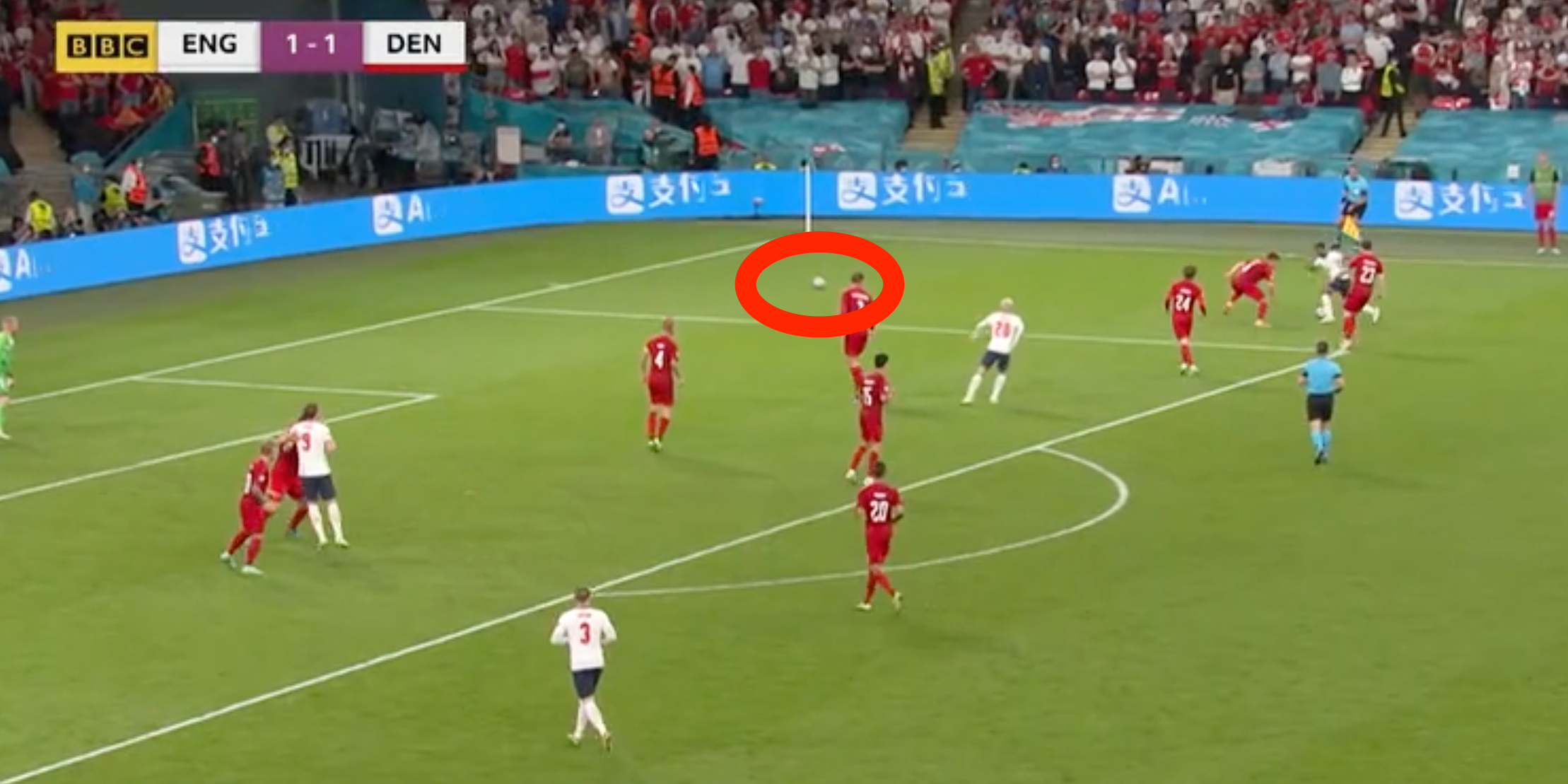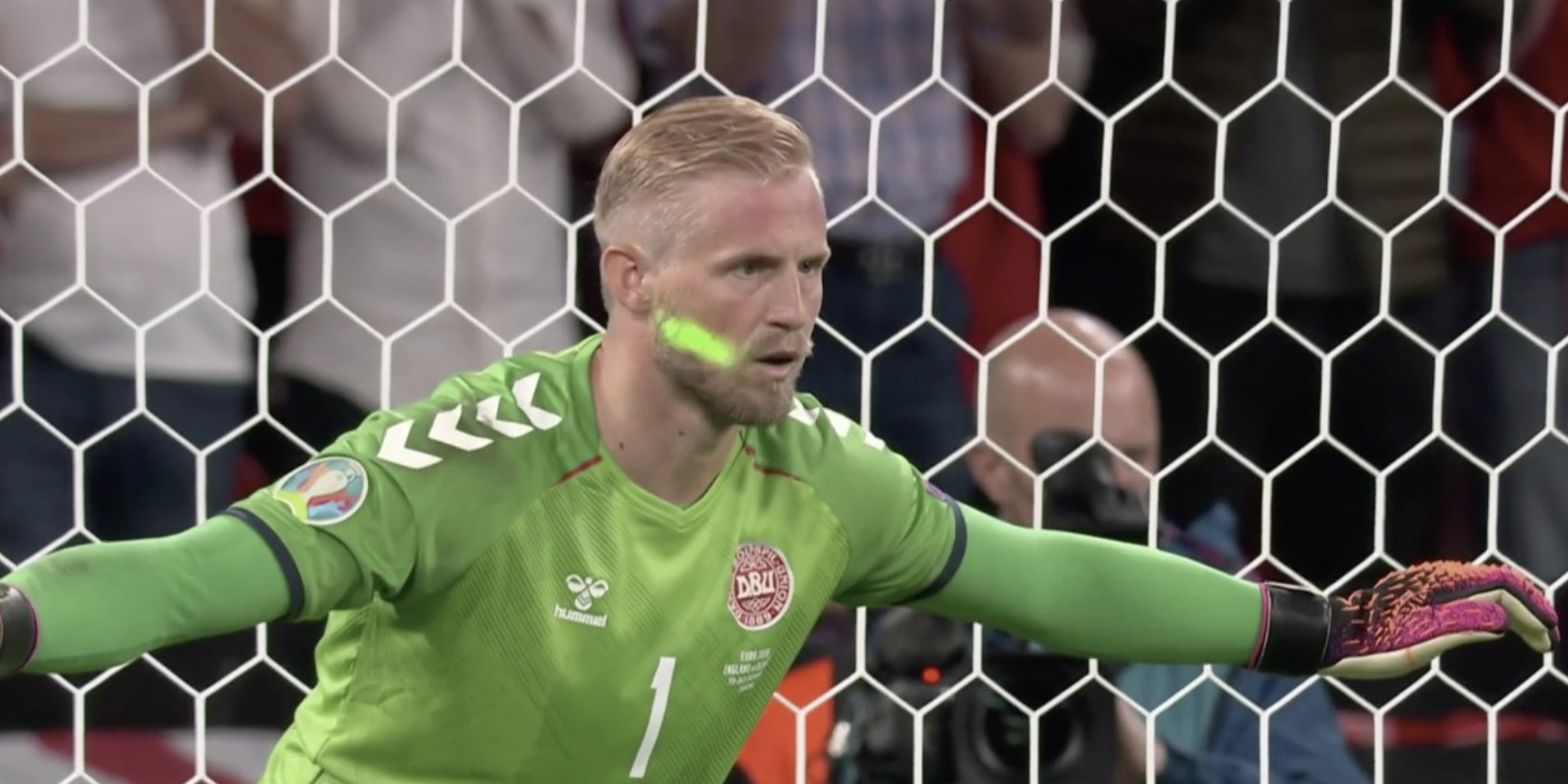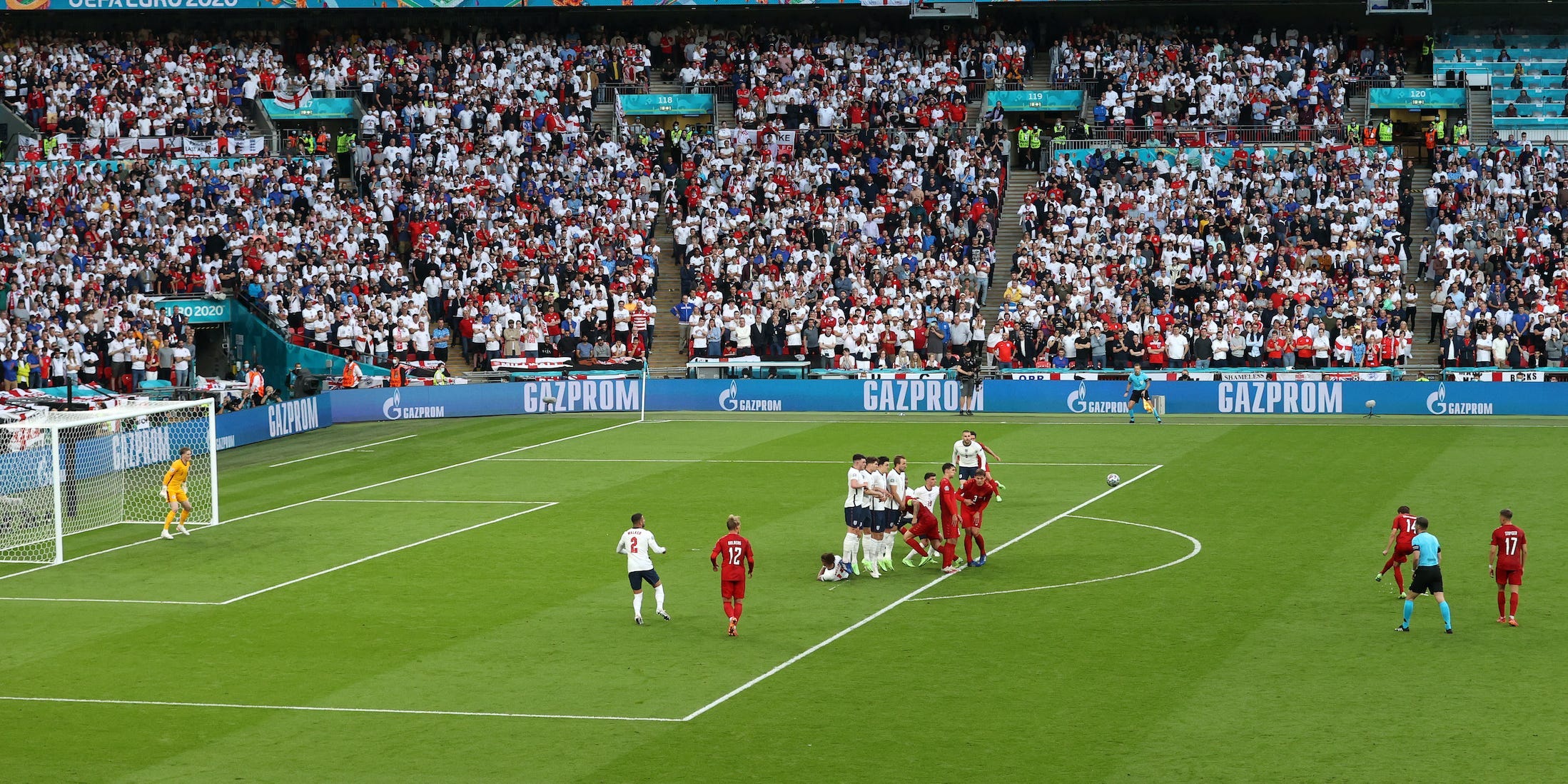
Laurence Griffiths/Getty Images
- The decisive penalty that sent England to its first Euros final was marred by a series of controversies.
- Some claim Raheem Sterling dived, while there was also a second ball on the pitch at the time.
- Danish goalkeeper Kasper Schmeichel also had a laser flashed in his eyes just before the penalty.
- Visit Insider's homepage for more stories.
The penalty that helped send England to its first ever European Championship final was marred by a string of controversies ranging from whether it was a dive to a second ball being on the pitch at the time to the Danish goalkeeper having a laser shone in his eyes.
England made it to its first major tournament final in 55 years thanks to a Harry Kane penalty rebound in extra time.
Denmark scored the opening goal of the game when 21-year-old Mikkel Damsgaard rifled in a free kick past Jordan Pickford, but England equalized nine minutes later as Danish captain Simon Kjær put the ball into his own net.
After a cagey game, which England dominated for large periods, the match went to extra time, when the controversial penalty was awarded.
The decisive spot kick had many Danish and neutral fans up in arms. It was given in the 102nd minute when Manchester City's Raheem Sterling weaved his way into the box.
As he reached the byline, two Danish defenders came close to him and he fell to the floor. Referee Danny Makkelie did not hesitate in pointing towards the spot and the Danish players were furious about the decision.
Sterling was challenged by Joakim Mæhle and Mathias Jensen, but replays showed the England player was already falling down before contact was made.
VAR stepped in to look at the penalty award, but decided that Makielle had not made a "clear and obvious error," the grounds for any decision to be overturned by the video referee.
Before the penalty was awarded, the controversy had already begun. As Sterling was running into the box, he ran past a second ball which had been thrown onto the pitch.
Some fans argued the game should have been stopped to allow the referee to remove the additional ball.
FIFA laws, however, state that if "an extra ball, other object or animal enters the field of play during the match, the referee must stop play only if it interferes with play."

Screenshot/BBC Sport
While Sterling and Danish defender Mæhle ran towards the box, they passed close to the ball, but it isn't clear if either player was distracted by its presence.
The issues didn't stop there.
After the spot kick had been given, Danish goalkeeper Kasper Schmeichel then had to deal with a laser being pointed in his eyes.
The green light was shone from the crowd and the Leicester goalkeeper seemingly noticed it as he looked down at his shirt just before the spot kick. On Thursday morning, UEFA announced that it had charged England over the incident.

Screenshot/ITV Sport
Ultimately, Kane missed the penalty, but scored on the rebound, sending England through to Sunday's final.
Managerial legends disagree with decision
The controversial spotkick came under fire from two of the game's greatest ever managers.
Former Arsenal manager Arsène Wenger, who was working as a pundit for beIN sport, said he thought VAR had left the referee down.
"In a moment like that, it's important that the referee is absolutely convinced that it was a penalty. It was not clear enough to say 'yes it is,' and at least he should have had a look on the screen.
"I don't know why the VAR didn't ask him to go. For me, it was no penalty, no. I think that VAR has let the referee down." said Wenger.
-beIN SPORTS (@beINSPORTS_EN) July 7, 2021
One of Wenger's former adversaries, José Mourinho, also disagreed with the decision.
"It's never a penalty. The best team won, England deserved to win. England was fantastic, but for me it's never a penalty," Mourinho told TalkSPORT.
Denmark's dubious goal

Catherine Ivill/Getty Images
While much time and energy has been spend on England's dubious penalty, the free kick scored by Damsgaard was not without its own issues.
The free kick's award was itself for a seemingly soft foul, while some have also speculated that Denmark's dummy wall may have broken a little-known rule of soccer.
The Danes set up a wall next to and just in front of England's wall to block the goalkeeper's view of the ball. In doing so, they may have contravened law 13.2 of football, as set out by the International Football Association Board (IFAB).
The law states: "Where three or more defending team players form a 'wall', all attacking team players must remain at least 1 m (1 yd) from the 'wall' until the ball is in play."
Footage from the night seems to show that the Danish wall was closer than a meter away from England's, meaning that they broke the rule.
Ultimately, both the English penalty goal, and the Danish free kick goal, stood, and England triumphed. The team now face Italy in the final at Wembley on Sunday.
